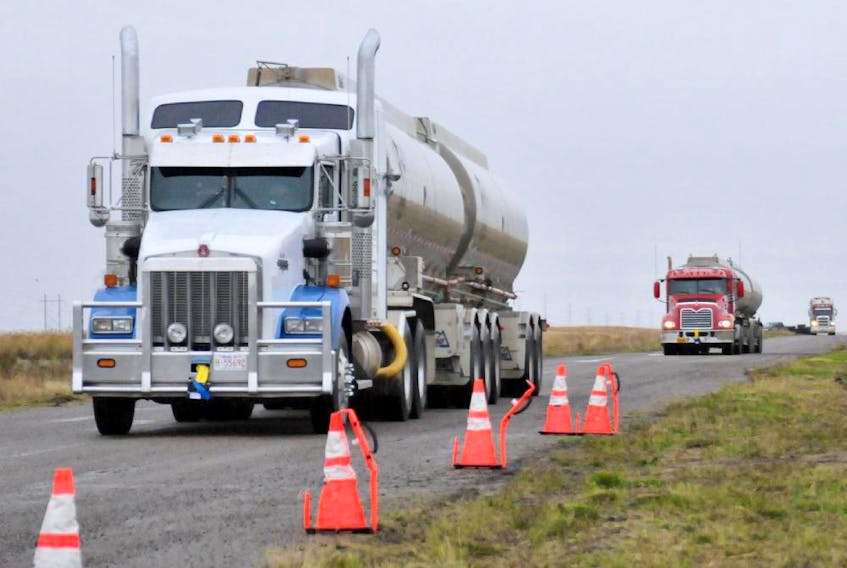Canadian workplaces are globally trail-blazing cannabis policies, with nearly half of private-sector employers imposing a blanket ban on cannabis use, says a Conference Board of Canada survey.
While legalization has pushed Canadian employers to address that reality — 76 per cent had updated their pot policies before the end of prohibition last October — many are still grappling with sensitive areas, said study senior researcher Monica Haberl.
And the survey of 163 employers found 48 per cent have adopted no-use-at-anytime rules for their workers despite the drug’s legality, said the report titled Acting on the Cannabis Act.
“There’s a zero-tolerance for use there, not just on the job but at all times, and that’s because testing for cannabis isn’t perfect, they choose to be on the safer side,” said Haberl.
“In some cases, the employer would say, ‘in order to get a job, you can’t use cannabis.’ ”
That’s weighted heavily in so-called safety-sensitive industries such as transportation or warehousing where heavy equipment is used, she said.
Among public-sector employers, 29 per cent have adopted that strict approach, states the study.
“A zero-tolerance policy would not hold up legally in non-safety-sensitive workplaces — this is based mainly on legal precedence and not on legislation,” said Haberl.
Only about one-third of respondents said they’d provide cannabis education or materials along those lines, she noted.
“With legalization, there are people trying it for the first time so there’s certainly opportunities for education, especially with edibles coming onto the market soon,” said Haberl.
“But I can see safety-sensitive workplaces employers don’t want to bring it up, thinking people will then try it.”
The survey of employers across the country was conducted last November to January, soon after legalization took effect Oct. 17.
It paints a picture of a national workplace that’s been thrust into a leadership role, though largely without the guidance of legislation, said Haberl.
“Because Canada’s the first G8 country to legalize it, other advanced countries looking at taking the same path are watching us,” she said.
It shows organizations are less concerned with cannabis use as time goes by — 52 per cent expressed fears about the drug’s effect before last October, with that number dropping to 36 per cent after.
But those concerns are much higher among safety-sensitive industries such as transportation and warehousing, which reached 78 per cent.
Jamie McMillan said a zero-tolerance policy for his 20 truck drivers is non-negotiable.
“For anybody who handles heavy equipment, you can’t have that, you could have another Humboldt Broncos situation,” said the man who owns Medicine Hat-based McMillan Transport Ltd.
“It can happen to anyone . . . we just can’t take the chances.”
Drug testing, he said, is done “as much as it’s needed,” though he’s confident his employees fully comply.
All members of pipeline inspection company In-line Pigging Solutions Ltd. are tested for cannabis and also face a zero-tolerance policy, even office workers, said its Health, Safety and Wellness manager David Geoffrion.
“It’s to make it fair,” he said, adding there has been pushback by those who want to use the CBD component of cannabis for medical purposes.
But he said that strict stance is really the product of the company’s clients who insist on it, coupled with the fact the firm does business in the U.S., where regulations are even more stringent.
When impairment testing technology is better, that could change, said Geoffrion.
“Science has to catch up. I think it will,” he said.
It’s those same uncertainties that have left most employers grappling with the definition of cannabis impairment, when its active ingredient, THC, can remain detectable in the body long after consumption, she added.
“There really isn’t a science to justify a very specific definition of impairment, there’s no comparable rating for cannabis as there is for alcohol,” said Haberl, adding progress has been made on cannabis analysis through mouth swabs.
The study also notes the Canadian Substance Use Cost and Harms Project cites alcohol-drug consumption costs to the economy at $38.4 billion in 2014, of which $2.82 billion was attributed to cannabis.
That compares to $14.6 billion from alcohol and about $12 billion from tobacco use.
The Conference Board of Canada is currently undertaking surveys on workplace cannabis and other drug testing and post-legalization productivity.
Twitter: @BillKaufmannjrn
Copyright Postmedia Network Inc., 2019









